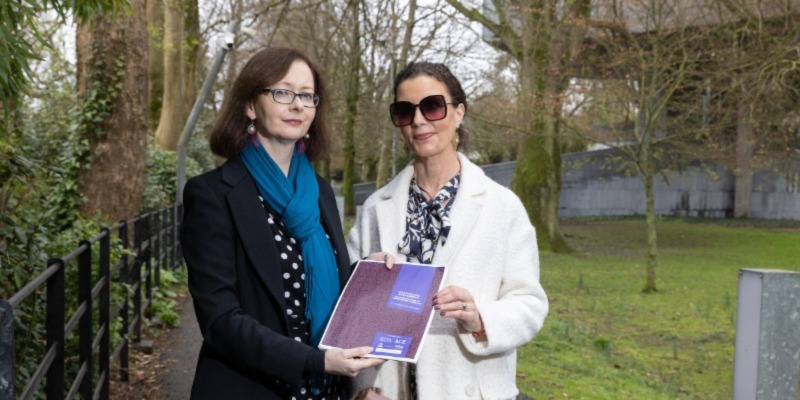In This Section
First Irish study on experiences of those stalked or harassed is published

- The report outlines ten recommendations
The first Irish study of those who have been stalked and/or harassed is published today (Tuesday 21 March) and reveals the social, financial and psychological impact upon those who experienced it, while urging a number of recommendations.
The University College Cork (UCC) report , undertaken by Dr Catherine O’Sullivan and Dr Ciara Staunton in partnership with the Sexual Violence Centre Cork (SVCC), shows how in the majority of cases perpetrators of stalking or harassment were known to them.
“The main objective of the study was to focus on the process of stalking and harassment, the effects on those who have been stalked and harassed and their responses to these behaviours,” stated Dr Catherine O’Sullivan.
Over one thousand participants responded to the survey and the research was prompted by the bravery of Una Ring and Eve McDowell who spoke out about their experiences of stalking and who advocated for the introduction of a new stalking offence in addition to the existing harassment offence in Ireland.
“Our findings identify a range of avoidance behaviours used by victims to protect themselves and reveals the social, financial, physical, and psychological consequences of stalking and harassment,” stated Dr Ciara Staunton.
Key findings in the report - Stalking and Harassment: An Investigation of Experiences in Ireland - include:
- The perpetrators identified by the victims were mostly known to them, i.e., partner or ex-partner, acquaintance, friend, or work colleague.
In a considerable proportion of cases the perpetrator was categorised as a stranger. - Respondents reported being threatened, physically attacked and sexually assaulted.
- There were 367 reports of the perpetrator threatening to harm themselves around the respondent. Having pictures or recordings taken without consent was mentioned 270 times with 170 reports of private images of a very personal nature being shared.
- 44% of respondents indicated that the perpetrators threatened to harm them or those close to them, directly or indirectly.
- Inappropriate texts, WhatsApps or emails were the most common forms of malicious communications identified by respondents.
- Being the target of inappropriate or malicious social media contacts (e.g. Twitter, Facebook) was the second highest form of reputational damage, mentioned 268 times.
- Changing routes from home or school and giving up social activities were the most common social impacts mentioned.
- Long term psychological distress was apparent among respondents with anxiety being the most frequently reported psychological consequence of the stalking and/or. Fear, increased distrust and sleep disturbances were the next most frequently reported consequences.
- Significant financial impact was highlighted with 401 respondents (45%) indicating that they sought psychological help in the form of counselling or other therapies, legal advice or the installation of security systems which comes at a cost.
- Forty-two per cent of respondents indicated that they reported the incidents to An Garda Síochána. Over half did not report.
- For those who did report, experiences of reporting were more likely to be negative than positive but key features of positive experiences included being believed, being taken seriously and having the report followed up.
- For those who did not report, and who gave reasons, there seems to be a general lack of trust in An Garda Síochána regarding gender-based violence and/or a fear that they would not be believed because of awareness of deficiencies regarding garda responses to gender-based violence.
The report makes ten recommendations including the need for an information campaign on stalking and harassment, improvements in training in An Garda Síochana and changes to the proposed new wording of Stalking Offences.
“This research is unique and will inform public policy and debate around the introduction of anti-stalking legislation and raise public awareness of the dangers of stalking and harassing behaviours,” Dr Ciara Staunton.
“The report includes the voice of those who have experienced stalking and harassment. This contributes not only to our understanding of the experience but also to our general knowledge of these behaviours,” stated Dr Catherine O’Sullivan.
The report is being launched online this evening (Tuesday, 21 March 5pm.) Members of the public can register to attend the event here.
